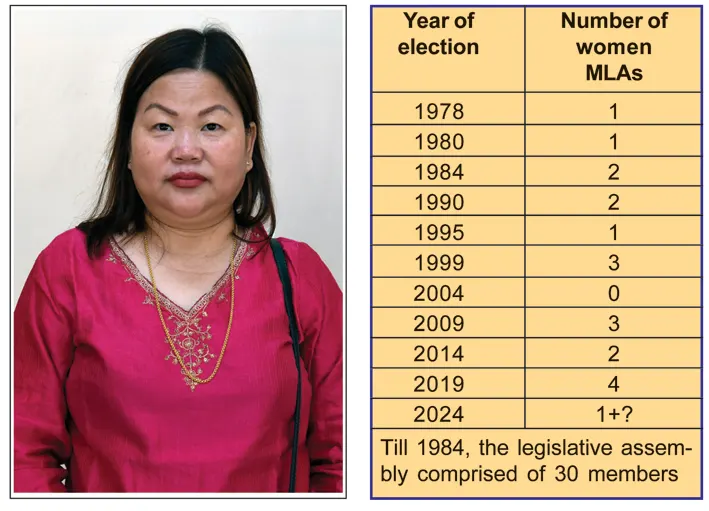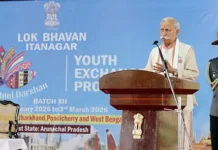[ Tongam Rina ]
Come 2 June, the stage will be set for the formation of a new government. It’s anybody’s guess who will be the next chief minister, but there is a likelihood that Chief Minister Pema Khandu, whom the BJP has projected as its CM candidate, will continue. The other contender, a formidable one at that, is the current Deputy Chief Minister Chowna Mein. It’s not the MLAs alone who will decide who becomes their leader; the RSS, the central BJP, and money will play a significant role. According to records, both candidates have no dearth of money or lacking in loyalty to the RSS or the BJP.
Whoever makes it to the top, the next tough choice will be regarding who will become part of the cabinet. As is the practice here, major tribes will have greater representation. In all likelihood, there will be new faces in the ministry. This time, the chief minister will also have to consider gender representation. Arunachal has not had a female cabinet minister in the last two decades. The last cabinet minister was Komoli Mossang.
This trend may likely be broken in 2024, with Dasanglu Pul being a strong contender. The three-time MLA, representing Hayuliang, was first elected in the 2016 by-election after the tragic demise of her husband, the late chief minister Kalikho Pul. She has been elected unopposed this time. It’s a rare feat for Arunachali women leaders to be reelected three times. Not that she lacks experience either; she has been an adviser to the WCD department. It is likely that at least two more women MLAs will keep her company, but it’s unlikely that more than one woman will get the berth.
The 91st Constitutional Amendment Act of 2003 has made it harder for women to find a place, as it specifies that the total number of ministers, including the chief minister, shall not exceed 15 percent of the total strength of a legislative House, and the number of ministers shall not be less than 12.
There have been at least four female ministers, including Yari Dulom, Mekap Dolo, and Niani Natung, but a minister of cabinet rank was Komoli Mossang in 1990 during Gegong Apang’s regime. She represented the 51-Nampong constituency.
With the passage of provision for women’s reservation in legislative Assemblies and Parliament, there might be a different scenario, but it remains to be seen. Before its implementation, it is pertinent to ensure representation of women in the ministry. They cannot be discriminated against on the basis of gender or education, because if they are capable of representing their constituents, they are qualified to represent the people of the state, like their male counterparts.

